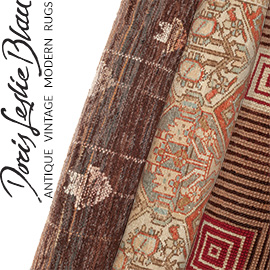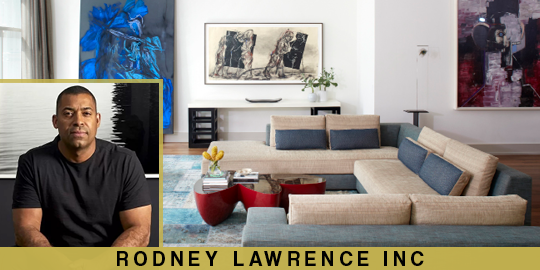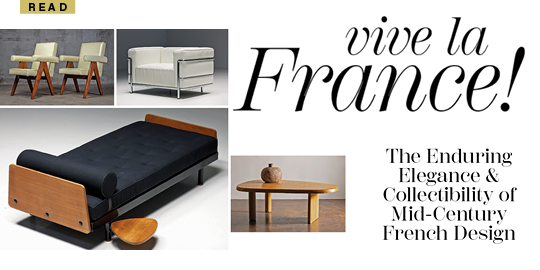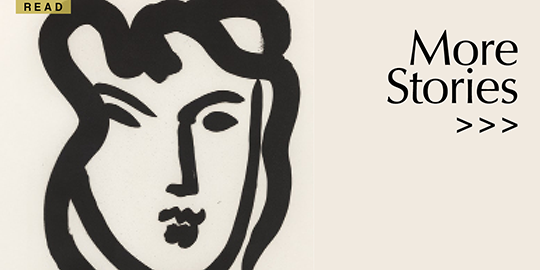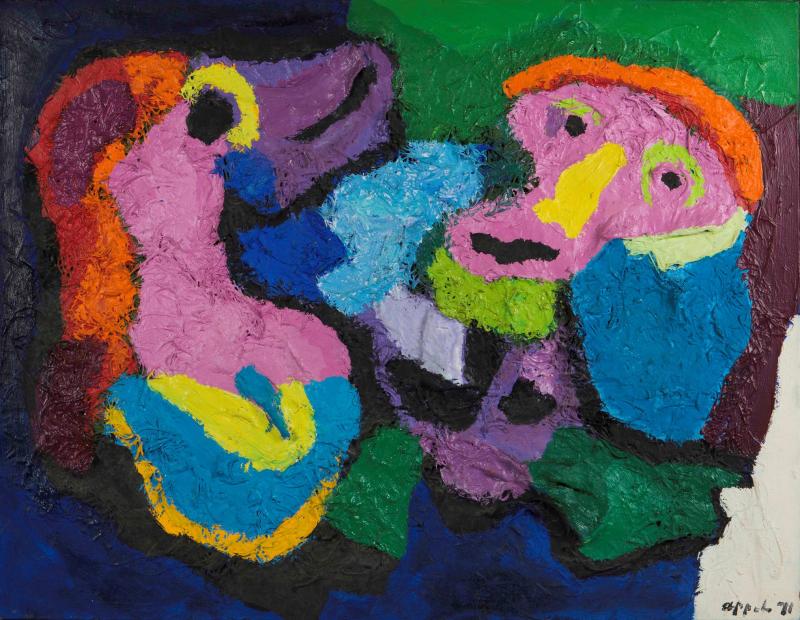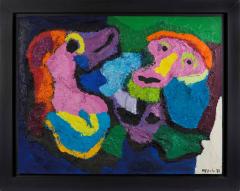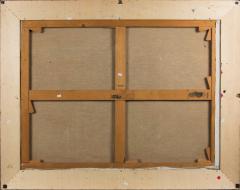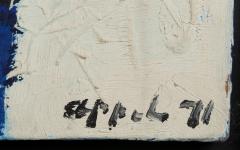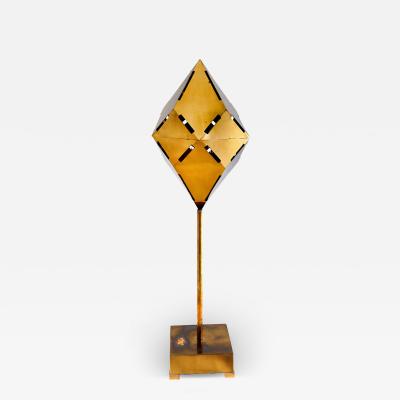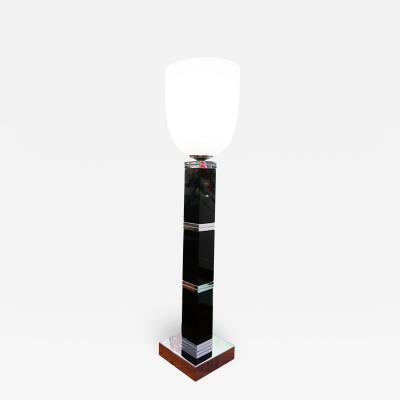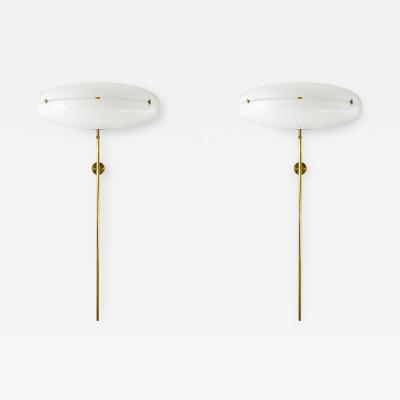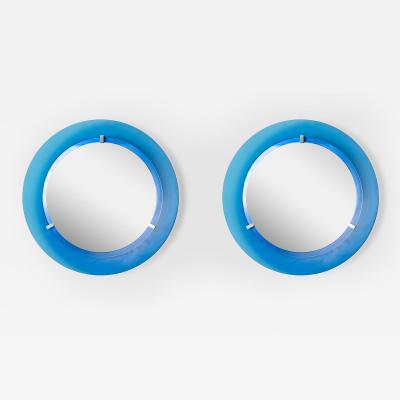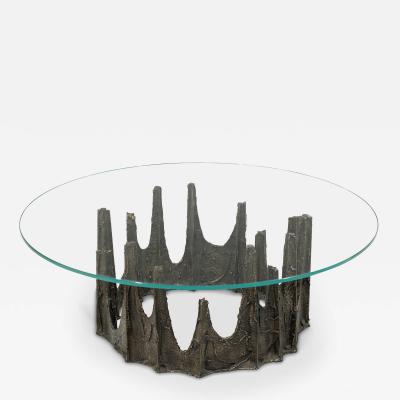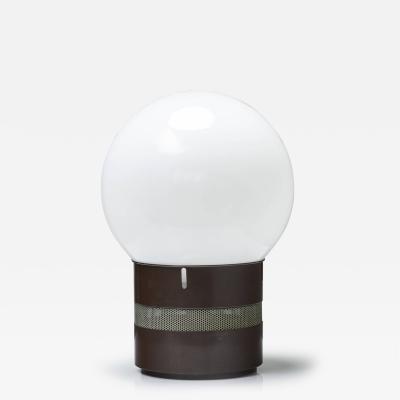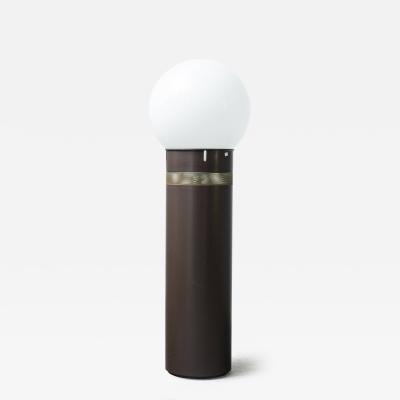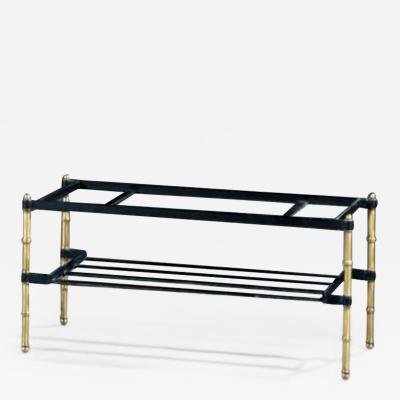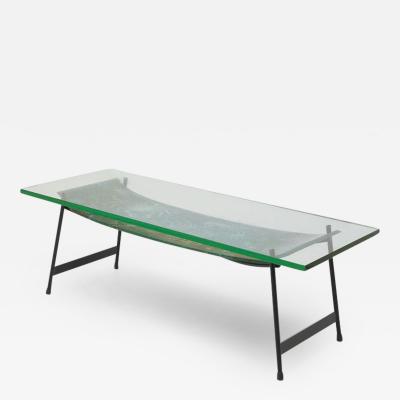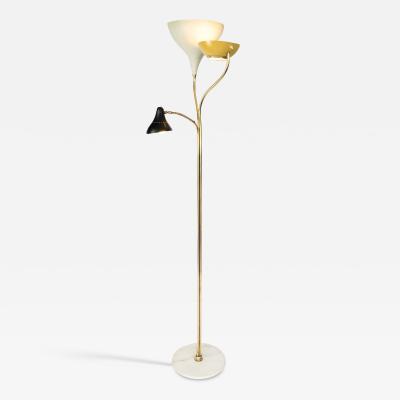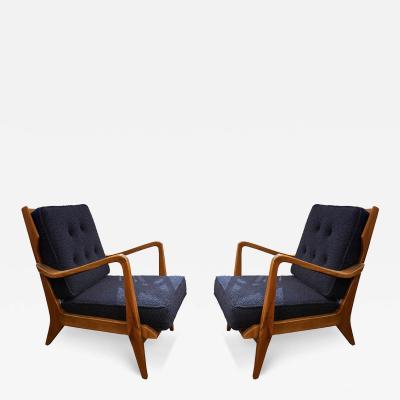Untitled
-
Description
A Dutch painter, sculptor, and poet, born in Amsterdam, Karel Appel started painting at the age of fourteen and then studied at the Rijksakademie in Amsterdam in the 1940s. Besides being a painter and lithographer, he also created polychrome sculptures, stained-glass windows, mural paintings, and poetry.
Appel had his first show in Groningen in 1946 and his early work was influenced by Picasso, Matisse, and Dubuffet. In 1948, with longtime friends Corneille and Constant, he founded the experimental group and magazine Reflex, and soon thereafter helped found the CoBrA movement. Based on the unifying doctrine of complete freedom of colour and form, the CoBrA movement had antipathy towards Surrealism as well as a common interest in Marxism and modernism.
In 1949, Appel participated with the other CoBrA artists at an exhibition in the Stedelijk Museum in Amsterdam which generated a huge scandal and many objections in the press and public. The new art of the CoBrA-group was not popular in the Netherlands and as a result, Appel moved to Paris in 1950 and truly developed his international reputation. His subject matter was both broad-ranging and powerful, with a wide appeal. Continually developing his skills, on a trip to the United States in 1957, he was introduced to Action Painting (where paint is spontaneously dribbled, splashed or smeared onto the canvas, rather than being carefully applied) and this freedom from standards ushered in a new period for Appel as his work became more dynamic. -
More Information
Documentation: Certificate of Authenticity Notes: Certificate of authenticity from the Karel Appel Foundation, Harriet de Visser, on June 20th 2006. Origin: Netherlands Period: 1950-1979 Materials: Mixed media on canvas Condition: Good. The painting is in good overal condition. Creation Date: 1971 Styles / Movements: Abstract Expressionism 200 Lex Booth #: 29 Incollect Reference #: 700847 -
Dimensions
W. 45.67 in; H. 35.43 in; W. 116 cm; H. 90 cm;
Message from Seller:
This revolutionary space showcases over 50 of the finest antique and vintage dealers, who present an extraordinary mix of antique, vintage, and 21st Century finds – furniture, accessories, lighting, fine art, and fine jewelry. We are an all-inclusive design resource for both designers and consumers THE GALLERY AT 200 LEX: MONDAY – FRIDAY 9:30 AM – 5:30PM FOR MORE INFORMATION CALL 646-293-6633 OR EMAIL THEGALLERY@NYDC.COM
AVAILABLE AT:
The Gallery at 200 LEX







